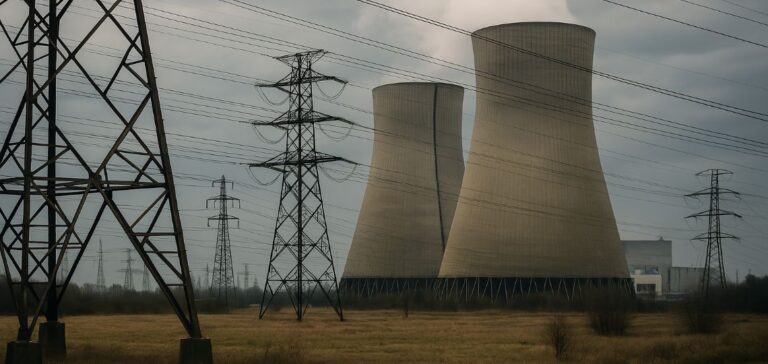Electricity consumption in Europe has not grown significantly over the past two decades, delaying the decarbonisation strategy promoted by the European Union. In France, this trend is reflected in a modest 0.7% increase in 2024, following two consecutive years of decline. This growth remains insufficient to return to the levels of the 2014–2019 period, with consumption still 6% lower.
Slow progress against ambitious targets
Across the European Union, electricity consumption rose by 1.5% in 2024, according to figures from energy operators. This marginal increase contrasts with the carbon neutrality ambitions set for 2050. The share of electricity in overall energy consumption has remained stable at around 23% for nearly a decade, according to Eurelectric, the industry representative. This slow electrification of usage particularly affects the industrial sector, where only 4% of high-emission thermal processes are currently electrified.
Unfavourable economic conditions
The price gap between electricity and gas continues to be a limiting factor. Although gas remains twice as expensive as before the 2022 energy crisis, its cost has become sustainable again for industrial use. Phuc-Vinh Nguyen, Head of the Energy Centre at the Jacques Delors Institute, explains that inefficient fiscal mechanisms fail to encourage substitution. He recommends a rebalancing of taxation to stimulate the electrification of end uses.
A slowdown in low-carbon technologies
Data published by the International Energy Agency (IEA) shows a 6% drop in electric vehicle sales in 2024, while heat pump sales fell by 21%. These declines indicate a slowdown in the deployment of electric technologies. Meanwhile, France recorded a historic electricity export surplus of 89 terawatt-hours (TWh) in 2024, highlighting a surplus in production that has failed to generate stronger domestic demand.
Political tensions over energy policy
Amid this sluggish trend, debates have emerged in the French Parliament over the planned development of renewable energy for 2025–2035. Some lawmakers seek to scale back the targets, citing insufficient demand to justify investment. Thomas Veyrenc, Executive Director at Réseau de transport d’électricité (RTE), stresses the strategic dimension of electrification, describing it as a tool for energy sovereignty for France and its European neighbours.





















